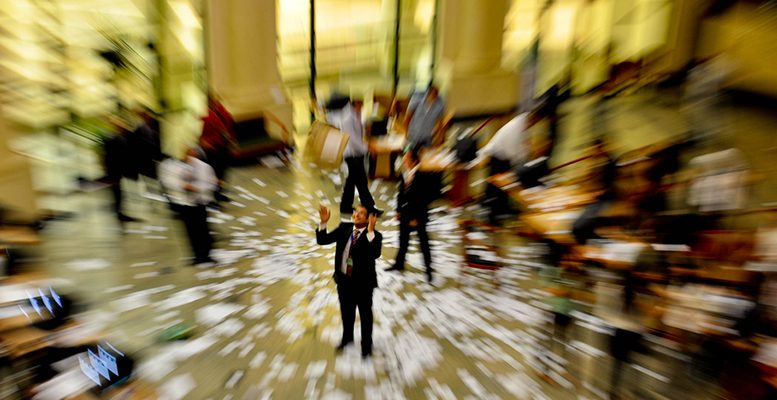Various world-renowned experts are increasingly doubtful that the stock markets’ level is sustainable. For example, George Soros has increased his short position in the US market. And he’s not the only one. Ray Dalio is extremely pessimistic about the next few years, flagging that the next crisis will be much harder than the current one which started after Lehman Brothers’ bankruptcy.
On the other hand, the philosopher, writer and financier Nassim Nicholas Taleb has also warned that he sees many more risks now than in 2007 (Nassim Taleb supports Trump, but he the risk as higher than in 2007). He states that’s it’s not logical to hold any stocks in a portfolio at the momento without some kind of coverage. And then finally, investors of the stature of Seth Klarman, Jeff Gundlach or Paul Tudor Jones have also shown concern and fear about the markets’ current situation, highlighting as the main problems the high market valuations, a leverage for buying shares at record highs, or the massive selling of shares on the part of “insiders”.
But there is still huge euphoria in the markets. While money remains cheap, in relation to the expectation of gains, speculation will continue. On the one hand there is an objective factor, which is what the central banks have provided – cheap money and expectations that it won’t suddenly become expensive -, and, on the other, a completely subjective factor: expectations of gains. Of course, the one is linked to the other, because as I said “expectations that it won’t suddenly become expensive”. In reality, the two key factors are expectations of gains versus interest rate expectations.
When this differential suddenly lurches on any piece of news, the markets will tremble. Of course we don’t know to what extent, so for that reason we make a bet for one day more – or one hour more – to make just a little bit more. It works until it doesn’t work because a child said: “the king is in the altogether.” But there needs to be a child around to say it. And then, suddenly, everyone’s view makes a 180 degree turn and the selling starts. The more selling there is, the longer it continues and the lower prices fall. But, as Gavyn Davies tells us, we can expect the Fed to delay its predicted rate hike, given that the inflation figure to be published on Tuesday will be the lowest since 2015. The markets know this and discount it before anyone else
According to Michael Mckenzie, the blame for this stock market exuberance lies with the central banks as a result of their huge injections of liquidity. In total, the main central banks have injected $14 billion into the global economy. What the speculators consider as a done deal is that the central banks have to reverse this inflation of bonds on their balance sheets. But there is no hope that this will be other than a slow process. Why? Precisely because they are afraid of another crisis like that of 2008, or even worse. This situation naturally fuels speculation. Against this backdrop, the real economies are languishing, growing only slightly, and productivity is conspicuous by its absence, which makes the relationship between share prices and fundamentals even more separate. Another worrying indicator is volatility, which is lower than ever, reflecting a “worrying” lack of concern about an adverse reaction on the part of the markets.
Not everyone is so pessimistic. Robert Shiller, Nobel prizewinner and one of the most respected analysts, has said the market could rise a further 50% over the next three years, before it falls. His CAPE ratio – Cyclically Adjusted Price-Earnings ratio – is not at the record level of 2000, although it is at 29 compared with the average record high of 17. What do we make of this? Shiller is simply saying that before the hecatombe we can – they can – still make a lot more money, up to 50% more. We can’t be more precise. The person who is optimistic will find reasons for more speculation and the one who is not will find reasons for shorting the market. The latter has its risks, because you don’t just have to guess the direction but also the extent. Good luck. What we can say is that the macro prudent policy has failed. Supposedly, it could have short-circuited the speculation channels, but it has not pressed the right key.
*Image: Flickr /Ahmed Nawawi





